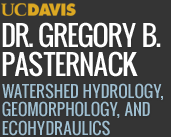Online TA Help
To facilitate your learning of the subject material for this course, this page has been set up to allow you to ask the professor questions about the readings, lectures, discussions, or other appropriate topics. Your questions and their answers will be posted (anonymously) here, so that all students may benefit from the answer, since it is likely that several people are wondering about the same thing.
Before sending in your question, be sure to re-read the appropriate textbook section, re-visit the corresponding lecture notes, and consider any relevant handouts. Please take the time to carefully phrase your question so that it may be properly answered. The more specific and well-phrased the question is, the more direct and useful the answer will be to yourself and your classmates.
Send your question to gpast(at|symbol)ucdavis.edu
Questions and Answers
What is this class really about???
A: The TAs and I try to explain the idea of the course and we try to repeatedly come back to the key themes throughout the quarter. Because the course emphasizes "critical thinking", I see it as a key task for the student to try to be an active participant and thinker to discern what you think the course is about. In general, the more effort you puts into that, the more benefit you get from the course. Alumni who have taken the course have contacted me reporting that the course has had a lasting impact on their way of thinking, but some course evaluations also show that in the absence of effort students can come away with nothing gained.
Q: For the expository essay, would it be appropriate to reference a personal story in my paper, and if so, what would be the best way to incorporate it in and cite it correctly.
A: In an expository essay, it is appropriate to provide some motivation for your essay in the introductory paragraph. Your story could work there, if kept brief. You could then come back to that at the very end. I'd avoid using it as supporting evidence for anything. In terms of citation, if you are telling the story from your experience, then you don't need a citation. If it came from someone else, then the citations would read "(name, pers. comm.)". So if you heard it from John Smith, then it would be (John Smith, pers. comm.). The phrase "pers. comm." is short for "personal communication.
Q: How do I know whether the fact I want to mention in my essay needs a citation?
A: You do not inherently know any scientific facts when you are born, so anything you present in your essay should be backed by an appropriate citation. A single citation may be used to cover several sentences in a row. You may cite textbooks for many basic facts that you want to mention. When in doubt, always take the side of using a citation. As a general rule, when in doubt, add a citation.
Q: I have a question about how you want the study guide assignment completed. The example you gave us merely poses questions, in depth ones indeed, but nonetheless questions. Other than the historical context and the last few sections about what happened to the girls, each section was a list of questions. Would you like us to make it in that type of format? If so, almost all of our references would be used in sections giving context, right? Or do you want us to make a study guide and also answer all the questions separately?
A: There is great flexibility in how you produce the study guide. The goal is to show critical thinking, creativity, and organization. I have seen such widely divergent approaches to the study guide that I hesitate to say what you should do. What I know does not work is (1) a science essay, (2) a print out of powerpoint slides as if it was a talk, or (3) a lot of photos with no substance. It is usually obvious to us when a study guide was slapped together with little thought or effort. On the other hand, not everyone is going to have the artistry to be extremely novel- I know I would not have as a student. Luckily, you have a lot of creative tools at your disposal and you can team up with another person to find a balanced approach. For example, choosing a best friend who is a lot like you might not work so well compared to choosing someone whose skills complement your own. Also, you have to factor in that when you partner with someone, you have to do time management and keep an eye on what each other is doing- if you divide the work and then try to merge at the end, you could face the problem of the other person failing to do their part. It is wiser to collaborate on all phases.
Q: What should I bring to the final exam?
A: The final exam is "closed book", so no course materials or aids (e.g. calculator, smartphone app, etc) are needed. Do make sure that you purchase and bring a UCD SCANTRON FORM 2000 (blue) along with some #2 pencils.


